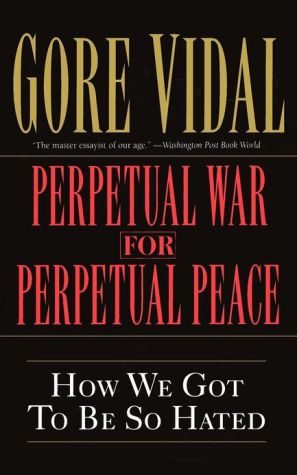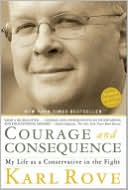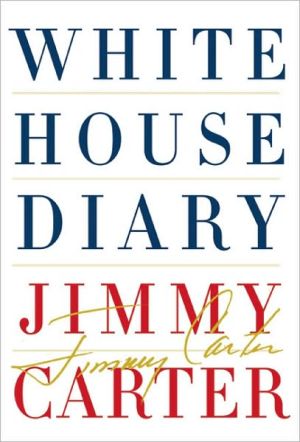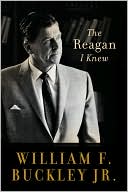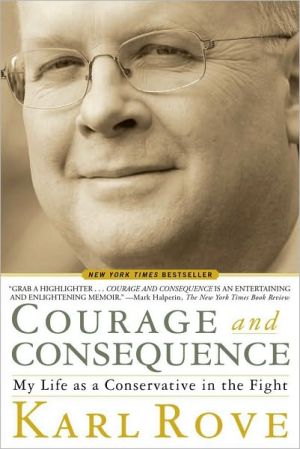Perpetual War for Perpetual Peace: How We Got to Be So Hated
The United States has been engaged in what the great historian Charles A. Beard called "perpetual war for perpetual peace." The Federation of American Scientists has cataloged nearly 200 military incursions since 1945 in which the United States has been the aggressor. In a series of penetrating and alarming essays, whose centerpiece is a commentary on the events of September 11, 2001 (deemed too controversial to publish in this country until now) Gore Vidal challenges the comforting consensus...
Search in google:
The United States has been engaged in what the great historian Charles A. Beard called "perpetual war for perpetual peace." The Federation of American Scientists has cataloged nearly 200 military incursions since 1945 in which the United States has been the aggressor. In a series of penetrating and alarming essays, whose centerpiece is a commentary on the events of September 11, 2001 (deemed too controversial to publish in this country until now) Gore Vidal challenges the comforting consensus following September 11th and goes back and draws connections to Timothy McVeigh's bombing of the federal building in Oklahoma City. He asks were these simply the acts of "evil-doers?" “Gore Vidal is the master essayist of our age.” — Washington Post ”Our greatest living man of letters.”—Boston Globe “Vidal’s imagination of American politics is so powerful as to compel awe.”—Harold Bloom, The New York Review of Books Publishers Weekly In this collection of essays, noted novelist and critic Vidal turns his acerbic wit on the United States. Never shy about expressing his opinion, Vidal questions U.S. assumptions regarding the Oklahoma City and World Trade Center bombings: "That our ruling junta might have seriously provoked McVeigh and Osama was never dealt with." His critique of the coverage of September 11 is slim, mostly centering on already reported truisms about why many in the Muslim world sympathize in some way with Osama bin Laden. Some readers, however, will share his unease with the willingness on the part of the American government and the American people to put concerns for civil liberties on the back burner during the war on terrorism. Vidal's criticisms of McVeigh, with whom he struck up a correspondence and a relationship, is more detailed. In Vidal's view, it is unlikely that McVeigh was solely responsible for Oklahoma City, and he saw himself as a martyr for a libertarian cause that would rescue America. But in this book, the tone is as important as the text. Vidal gleefully skewers American capitalism and the role of the religious right in American politics at every opportunity. Critics of American policy and American life, as well as those prone to conspiracy theories, are likely to find a lot of fodder. Many will not be surprised that Vidal's views have not received a wider hearing a piece on McVeigh was rejected by Vanity Fair, another by the Nation but even at his most contrarian, Vidal's writing is powerful and graceful. (May) Forecast: Vidal's piece on September 11 appeared in a book that became a bestseller in Italy. Will it do the same here? Not likely, but the success of Noam Chomsky's 9-11 makes it clear that at least some readers are ready for an alternate view. They may also welcome A Just Response (reviewed on p. 69), a collection from the Nation. Copyright 2002 Cahners Business Information.
IntroductionSeptember 11, 2001 (A Tuesday)1How I Became Interested in Timothy McVeigh and Vice Versa43Shredding the Bill of Rights49The Meaning of Timothy McVeigh83Fallout123The New Theocrats137A Letter to Be Delivered147
\ From Barnes & NobleThe Barnes & Noble Review\ In a response to the September 11, 2001, terrorist attacks that is sure to raise eyebrows (not to mention blood pressure), novelist and historian Gore Vidal raises the little-asked question, "Did we get a taste of our own medicine?" \ Vidal's position is that the U.S. has often done to other countries what Osama bin Laden is suspected of doing to us on 9/11:\ …Since 1947 America has been the chief and pioneering perpetrator of "pre-emptive" state terror, exclusively in the Third World and thus widely dissembled…Washington has resorted to political assassinations, surrogate death squads, and unseemly freedom fighters (e.g. bin Laden).\ As evidence for his claim that we've been doing what we claim our "evil" enemies have done to us (Vidal criticizes George W. Bush for what he calls simplistic "We are good, they are evil" statements), Vidal includes an eye-opening ten-page list of U.S. actions against what he terms the "enemy of the month club," ranging all the way from the Cold War to the recent actions in Kosovo and Bosnia. \ Lest one think Vidal is merely anti-GOP, he also laces into former president Bill Clinton for signing the 1996 Anti-Terrorism and Effective Death Penalty Act, which he says effectively gives the government unprecedented power to use the U.S. armed forces against the civilian population. At length, he criticizes the Branch Dividian raid in Waco by Clinton attorney general Janet Reno as government-sponsored murder of a group "living peaceably in their own compound."\ A large part of the book is devoted to Timothy McVeigh and the Oklahoma City bombing. Vidal clearly feels that there was a rush to judgment by the government; it's his opinion that McVeigh is a scapegoat of sorts, a fall guy swiftly executed without a thorough enough investigation as to whether anyone else was involved. (Vidal corresponded with the convicted domestic terrorist for a brief period; McVeigh had written him a fan letter after reading one of his magazine pieces.)\ No matter how one feels about terrorism, foreign or domestic, this is a book guaranteed to add to the noisy debate surrounding what is undoubtedly the most pressing issue of the day. (Nicholas Sinisi)\ Nicholas Sinisi is the Barnes & Noble.com Current Events editor.\ \ \ \ \ \ Publishers WeeklyIn this collection of essays, noted novelist and critic Vidal turns his acerbic wit on the United States. Never shy about expressing his opinion, Vidal questions U.S. assumptions regarding the Oklahoma City and World Trade Center bombings: "That our ruling junta might have seriously provoked McVeigh and Osama was never dealt with." His critique of the coverage of September 11 is slim, mostly centering on already reported truisms about why many in the Muslim world sympathize in some way with Osama bin Laden. Some readers, however, will share his unease with the willingness on the part of the American government and the American people to put concerns for civil liberties on the back burner during the war on terrorism. Vidal's criticisms of McVeigh, with whom he struck up a correspondence and a relationship, is more detailed. In Vidal's view, it is unlikely that McVeigh was solely responsible for Oklahoma City, and he saw himself as a martyr for a libertarian cause that would rescue America. But in this book, the tone is as important as the text. Vidal gleefully skewers American capitalism and the role of the religious right in American politics at every opportunity. Critics of American policy and American life, as well as those prone to conspiracy theories, are likely to find a lot of fodder. Many will not be surprised that Vidal's views have not received a wider hearing a piece on McVeigh was rejected by Vanity Fair, another by the Nation but even at his most contrarian, Vidal's writing is powerful and graceful. (May) Forecast: Vidal's piece on September 11 appeared in a book that became a bestseller in Italy. Will it do the same here? Not likely, but the success of Noam Chomsky's 9-11 makes it clear that at least some readers are ready for an alternate view. They may also welcome A Just Response (reviewed on p. 69), a collection from the Nation. Copyright 2002 Cahners Business Information.\ \ \ Kirkus ReviewsIn a piquant collection (originally published in Italy), Vidal (The Last Empire, 2001, etc.) asks readers to consider the forces that motivated Timothy McVeigh and Osama bin Laden-and perhaps it wouldn't hurt to heed the beating the Bill of Rights has been taking recently. When President Bush ("a powerless Mikado ruled by a shogun vice president and his Pentagon warrior counselors") tells his public that the nation is embarking on a "very long war," a "secret war" against operators like bin Laden, who has been reduced to a Shakespearean motiveless malignity, warning bells should be heard. Citizens ought to wonder, Vidal suggests, how we got in such a fix. Have our actions in the Middle East been not only self-serving, but open to misinterpretation as well? Plain hypocritical? Should we give with one hand, take away with the other: support Saddam Hussein or bin Laden one day, vilify him the next? When "Those to whom evil is done / Do evil in return" (Auden), is self-righteousness an option? As for McVeigh, does he bear witness to rage in the heartland? Is there a reason for the surge of militias? Has the destruction of the family farm anything to do with it? Have the trouncing of the Fourth, Fifth, and Fourteenth Amendments, the carte blanche given to the ATF/FBI/DEA/IRS to step on those rights, the abominations of Waco and Ruby Ridge, followed by the government's smug refusal to accept any culpability, at the very least boomeranged on their proclaimed intent? Deserves some thought by anyone with a shred of skepticism, thinks Vidal. He provides plenty of examples to sustain his shimmering abhorrence for current American politics (e.g., his contention that FBI Director Freeh was "placed" inhis job by Opus Dei). Challenging as ever, Vidal quotes Justice Brandeis: "If the government becomes the lawbreaker, it breeds contempt for laws; it invites every man to become a law unto himself."\ \
